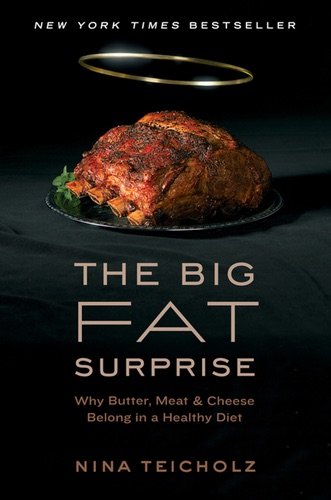My response to the letters that appeared in the New York Times on March 2nd. These letters were, in turn, responding to my op-ed in the Times.
I will add to this blog post, to respond to one more letter, so check back if you’re interested.
Letter by Willett and Stampfer:
- They present one clinical trial, Predimed, on the ‘Mediterranean Diet,’ to defend their work. This trial showed only that the Med diet performs better than a low-fat diet. But the low-fat diet is a failed diet. Any diet higher in fat performs better than the low-fat diet (which is why the USDA/AHA are trying to back off their low-fat diet recommendations). Also the diet in the Predimed diet did not reduce red meat which is completely different than Harvard’s “Mediterranean Diet,” which locates red meat in the tiny tip of the pyramid, above sweets even (so according to them we should eat more sweets than red meat). PREDIMED therefore tested a different diet than the one Willett et al propose. The benefits seen on PREDIMED therefore cannot be conferred upon the Harvard diet. Moreover, there are many other important findings from Harvard (and other epi studies) that have not been successfully confirmed by clinical trails. When tested by clinical trials, epi studies are only found to be right 0-20% of the time. That is a poor record upon which to base public health recommendations. This was the main point I was making in my op-ed, and their letter does not respond to this.
- Their second argument is that study I cite was by researchers at a private institution rather than the NIH, which supports their work. This argument is a variation of one I often see, which is that the advice of experts should be trusted more than the advice of non experts and that large institutions should be more trustworthy than journalists. In general, I might agree with this. The field of nutrition science, however, has become entrenched in its mistakes, a situation that is now becoming obvious: sixty years of expert advice on dietary cholesterol has been overturned, as has the expert advice on the low-fat diet; sixty years of expert advice on saturated fats has been seriously challenged. The reversals on these lynchpins of dietary advice show that the experts in large institutions have been wrong and in fact, cannot be trusted based on their authority alone.
(As a secondary point, the study I cite has largely been replicated by John Ioannidis at Stanford University, and there are other academic researchers making these same points, so the particular institution behind this particular study is not especially important.) - Willett and Stampfer state that I say all carbs are bad. Nowhere do I say this. My point is that our Dietary Guidelines should back off the high-carb diet, to a more moderate level of carbs, as we had back in the 1960s (when carbs represented about 40% of calories; this has risen to more than 50%).
Letter by Adhoot about meat consumption:
This letter says that we used to eat more red meat in 1909. This is incorrect. See chart page 115 in my book. We eat a bit less meat than we did in 1909. And in 1800, Americans ate 3-4 times more red meat than they do today.


